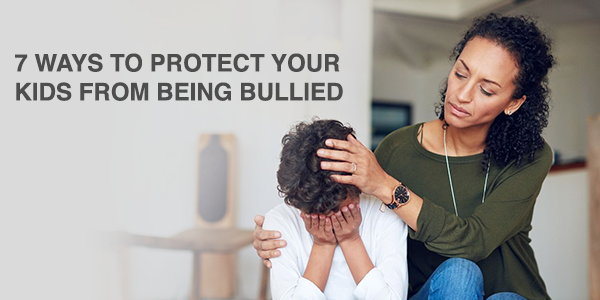
Children are most protected at home. Though initial social skills are learnt there, they grow up with experiences from their external surroundings. It could be school, extra curricular classes, park, parties and even tuition with friends and neighbours. One thing children commonly experience in interactions is bullying. It’s important to equip your kids with the tools they need to handle such a situation. Sometimes, in extreme scenarios, parents may have to interfere. Let us go through some simple techniques you can use to help your children face this reality.
Ignore
Teach your kids to ignore bullies, and not react to their taunts. Tell them, by ignoring the bully , you are giving a message that being bullied or teased doesn’t matter to you. Studies show that walking away reduces bullying by 20% and could end it entirely.
Stand up for yourself and others
If your child is in a confident and safe space you can encourage them to stand up for themselves. Tell them to use phrases like,“What you are doing is not OK” or “You are hurting my feelings”. When they stand up for someone else, they would realise they do have the power to defend themselves.
Role play.
Practicing difficult situations at home can help with real world situations your children are faced with. Parents can take the role of the bully and children can be taught how to speak in a firm voice while maintaining eye contact. This would give your kids the confidence and courage to respond with positive body language.
Just talk about it
When a child is bullied, he or she should be able to talk about it with their parents. It’s important children feel their parents are a safe space to confide in. When needed, you can bring up these issues to the school. School authorities may not be able to monitor every incident. However, when informed, they should resort to healthy interventions with the help of parents, teachers ,or a student’s counsellor.
Say no to Tears
Bullies intend to insult or tease others in order to get a reaction. Tell your kids to stop giving them the satisfaction. Instead, just shrug off the comments and don’t feed them with tears. A blank look may prevent them from further action.
Seek help
Generally, children aren’t equipped to handle bullying or any situation that’s strange to them, on their own. It’s important to make them aware that seeking help is normal behaviour and they don’t have to face bullying on their own.
Kindle friendship through healthy options
Joining a sports centre, dance school or arts class is a great way to engage in creative activities. This will help children forget the abuse and new friendships will instigate more positivity. It takes their mind off the trauma bullying can cause and makes them feel good about themselves.